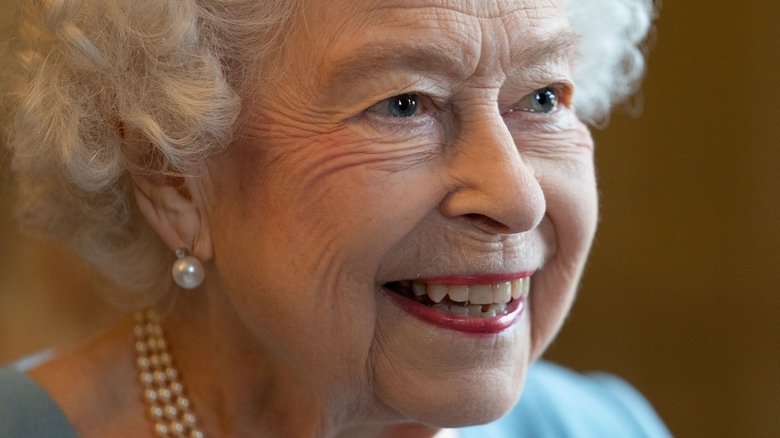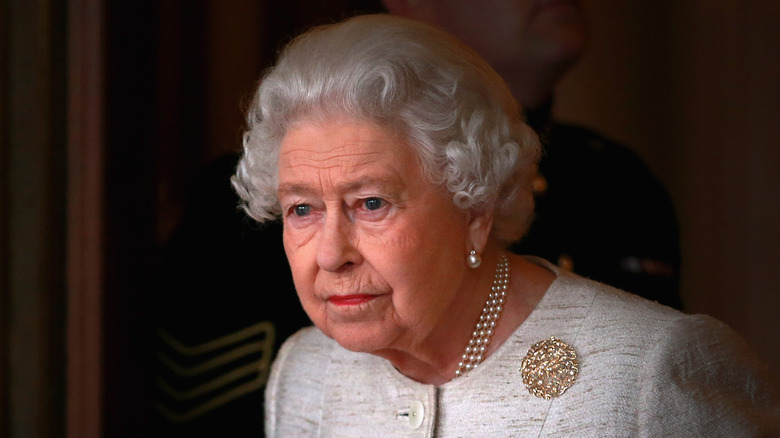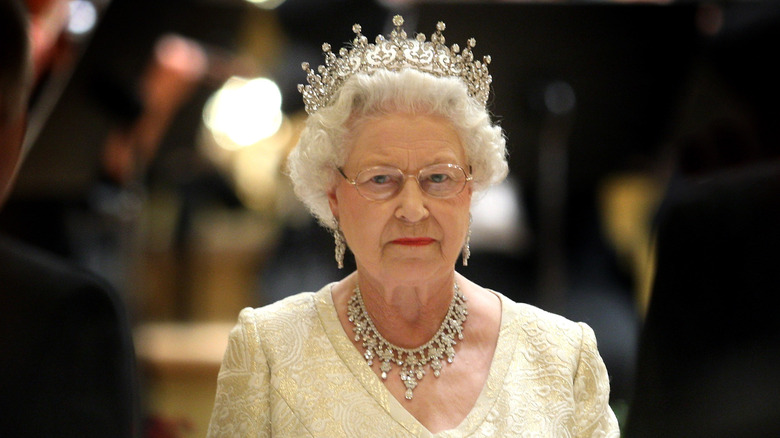Does The Queen Really Have Political Influence?
When we think of royals, many of us tend to think of power. Certainly, history is peppered with instances that show the royals battling it out amongst themselves to secure that power — and if that wasn't enough, we have countless pop culture references to remind us of that fact. Who can forget Scar killing off his own brother in "The Lion King"?!
With all that in mind, it's only fitting that many might think the same is true with the British royal family. After all, the Windsors do have some pretty bizarre powers over people. However, recent history has shown that the crown tends to shy away from political statements. Case in point: Kate Middleton not wearing black to the 2018 BAFTAs, despite the Time's Up initiative urging attendees to do so. The duchess' choice to avoid a statement raised eyebrows at the time, but certainly made sense two years later, when her sister-in-law Meghan Markle received backlash for even casting a vote in the 2020 U.S. election.
That said, while Middleton is a senior royal and Markle the wife to the man sixth in line to the throne, they're still relatively far behind the monarch herself. With that in mind, if the queen's granddaughters-in-law have been so limited in their political abilities ... how much political influence does Queen Elizabeth II have?
The queen's political powers are limited, to say the least
The queen's political power is almost nonexistent. Per the royal family's official website, the United Kingdom is a constitutional monarchy, and as such, to quote U.K. Parliament, Elizabeth II's role is "broadly ceremonial." She may open parliament (though, notably, she was unable to do so in 2022 due to health issues), but not participate in it. Likewise, the duty falls upon her to approve an incoming prime minister, but she does not have the right to vote for one of her choosing.
Beyond parliament, the queen is also not permitted to make political statements. As the official royal website states, "The Queen has to remain strictly neutral with respect to political matters." Given her decades-long dedication to her duties, it's unsurprising that it's a hindrance she takes seriously — and one she's ready to remind the world of when necessary. As CNN reported in 2016, Buckingham Palace was quick to shut down rumors after The Sun claimed that she was in favor of Brexit. "The Queen remains politically neutral," their statement read — along with an ever-so-slightly shady royal add-on: "as she has for 63 years."
Neutrality does have some drawbacks, though. As CNN noted, Elizabeth II has had to welcome a number of controversial world leaders throughout her reign. According to ITV documentary "Inside the Crown" (via the Independent) she once hid away from Romania's former communist leader Nicolae Ceacescu in her downtime, to avoid engaging. However, publicly, she was pictured smiling alongside him.
... but she does hold some sway
Need for neutrality aside, however, that's not to say Her Majesty doesn't hold any sway. In fact, while she's seldom — if ever — taken advantage of them, there are some political powers she does wield. For one, just as the queen is tasked with approving prime ministers (per History), she also has the capacity to dismiss them, should she feel the need arise. At the time of writing, though, the queen had never exercised that right. In fact, according to Metro, the last prime minister to have been dismissed by a monarch was Lord Melbourne ... in 1834.
So, where does the queen's true power lie, then? According to Reuters, it's all in the "soft power." Elizabeth II might not be able to express her political views, but it's precisely because of that that she's become an icon of stability. Per the official royal website, that is her chief role as monarch: "The Sovereign acts as a focus for national identity, unity and pride; gives a sense of stability and continuity."
With the world ready to celebrate her Platinum Jubilee, we'd say Her Majesty has done a pretty good job of that over the past 70 years. She might not have political influence in the truest sense of the word, but as BBC News pointed out, she has outstayed more than 10 prime ministers and U.S. presidents over her reign. Is now an appropriate time to say, "Yas queen"?



